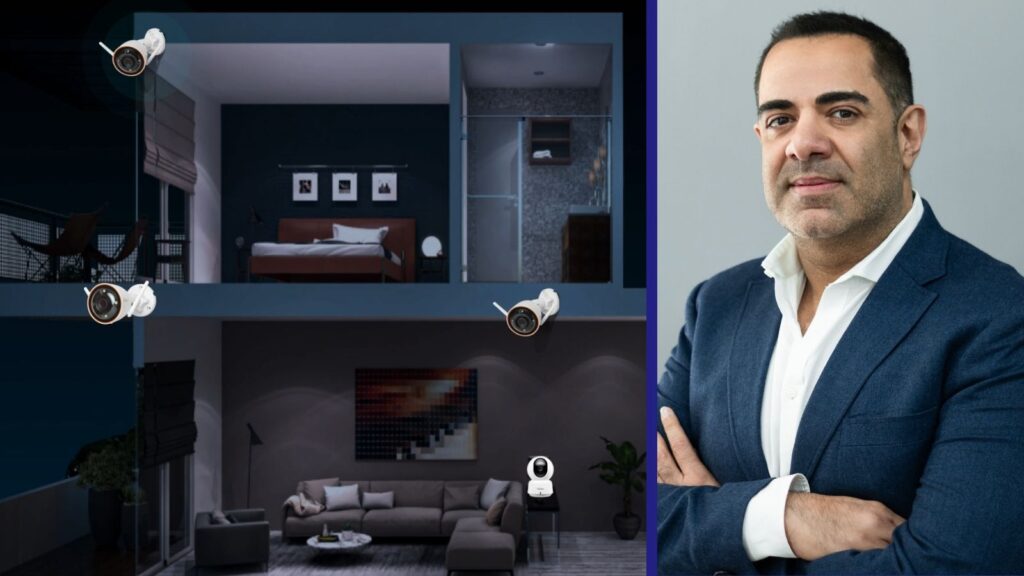“People are realising that these smart devices are not expensive. Earlier, security equipment used to be expensive and complicated. Now, smart devices are easy to use and low cost,” said Nikhil Rajpal, CEO of Qubo and Hero Electronix. At a time when the market is burgeoning with numerous brands jostling to capture the attention of consumers seeking security devices, Qubo is emerging as a reliable choice.
In a recent interview with indianexpress.com, Rajpal shared how the company is creating AI-powered security solutions that have been tailored specifically for Indian consumers along with championing the ‘Make in India’ initiative.
With the recent spate of high-profile incidents, such as celebrities being attacked or trespassers getting access to private property, has the perception around security tech changed? Rajpal affirmed that there is a big change underway. According to him, even though smart devices have become accessible and affordable, the awareness is still low. “I think awareness is increasing, but still low on how these smart products can really improve your life,” he noted.
Rajpal revealed that this increasing awareness has been noticeable in cities like Bengaluru, where conversations around dash cams have increased in recent months. When it comes to dashcams, the Qubo executive said that what was once considered a tool for content creation has now become a necessary safety equipment for many.
“With today’s crazy traffic and unhinged driving, having dash cams gives you proof that it wasn’t your fault,” explained Rajpal. While extolling the key USP of the technology, he added that dashcams today start as low as Rs 3,000 and only take a few minutes to install. “There’s no reason not to have them anymore,” he said.
Designed for India
While talking about Qubo’s product development process, Rajpal shared that it has been shaped by challenges that are unique to India. When asked how the company stands out, Rajpal explained that the cameras offered by the company use AI for real-time detection. “For example, if someone enters a balcony at night, the camera sounds an alarm and sends an alert. We’ve moved from just recording to real-time protection. We also have features such as Baby Cry Alerts, specifically tuned for noisy households. The camera detects a baby crying and alerts the parent. That’s where AI makes a difference,” he said.
When it comes to the cloud, Rajpal explained that if someone steals the camera, the footage remains safe. “This combination of AI and cloud makes a smart security system.”
Story continues below this ad
AI is being used by many security firms to enhance their offerings. When asked how Qubo was leveraging AI for their imaging systems, especially in low-light environments, Rajpal shared that their AI is focused on India. “Our challenge is to run powerful AI algorithms on low-cost, low-compute cameras, priced around Rs 1,500. These are edge devices, not cloud-powered. And we make algorithms that matter here—like intruder detection, not package delivery alerts. We’re building tech for India, by India, on devices people can afford.”
On privacy
Today, when privacy concerns are mounting worldwide, Rajpal claimed that Qubo has positioned itself as a security-first company with 100 per cent India-hosted infrastructure. This is a significant differentiator for the company, which is operating in a segment that is crowded with Chinese brands with their cloud servers based abroad.
“Most of the cameras being sold in India are Chinese, with their cloud infrastructure sitting in that country,” Rajpal points out. This vulnerability was exposed during the Galwan crisis when government cameras were compromised.
According to the executive, the Indian government has recognised this security risk and implemented new regulations. “The Ministry has come up with a new regulation now called STQC: essential requirements, which all cameras have to go through rigorous testing on security for and be approved by the new BIS,” explained Rajpal.
Story continues below this ad
Make in India and expansion plans
During the conversation, Rajpal said that he takes pride in the fact that his company offers products that are fully made in India. “What I’m really proud of is that the brain of these devices is the software. We build our software ourselves,” Rajpal said. Their end-to-end approach comprises an R&D team of 70 based out of Noida, where they develop everything from hardware and software to AI algorithms and cloud capabilities. “For us, making India is the whole thing, not just the product assembly; even the software is Indian, and the power is Indian everything,” he adds.
Earlier, security tech was mostly concentrated in top-tier cities; Qubo’s devices are now reaching smaller towns. “I’m sure we have sold devices in over 100 cities. From Gujarat, Port Kandla, to Kanya Kumari to Mizoram to almost everywhere in India,” said Rajpal, though the distribution still skews 60 per cent tier-one cities and 40 per cent tier-two.
The Qubo executive said that he sees enormous growth potential. “India is just starting in smart security tech. Adoption is big, but only three to four per cent of the homes have cameras. Only one per cent of cars have dash cams.” Moreover, Qubo is also expanding beyond security products into a comprehensive smart home ecosystem. “We’re also getting into smart appliances, so we launched smart air purifiers last year with other things like robot vacuum cleaners and smart heaters,” Rajpal said.


